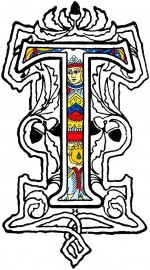“Reverie is an oneiric activity in which a glimmer of consciousness subsists. The dreamer of reverie is present in his reverie. Even when the reverie gives the impression of a flight out of the real, out of time and place, the dreamer of reverie knows that it is he who is absenting himself – he, in flesh and blood, who is becoming a “spirit”, a phantom of the past or of voyage.” (Bachelard pp. 150)
The faces of the dreamer form an infinite corridor of pillars facing a ubiquitous center . A sea of eyes see all and nothing. The dream navigator knows this place, where thresholds of awareness open and close perpetually. The dream navigator explores this labyrinth – this corridor we know as night.
The unconscious night is the birthplace of myth; it has no end and no beginning, no history, no future – it is timeless. It is a place of knowing – knowing which knows no bounds. The onieronaut explores the realms of night and day. He journeys to destinations unknown, along a fan of never-ending, never-beginning roads. He travels along both sides of a great mirror. Reverie is the dream waking within us; for if the lucid dreamer finds clarity in the hall of pillars – the unconscious night – the dream finds lucidity in the life of the waking dreamer.

